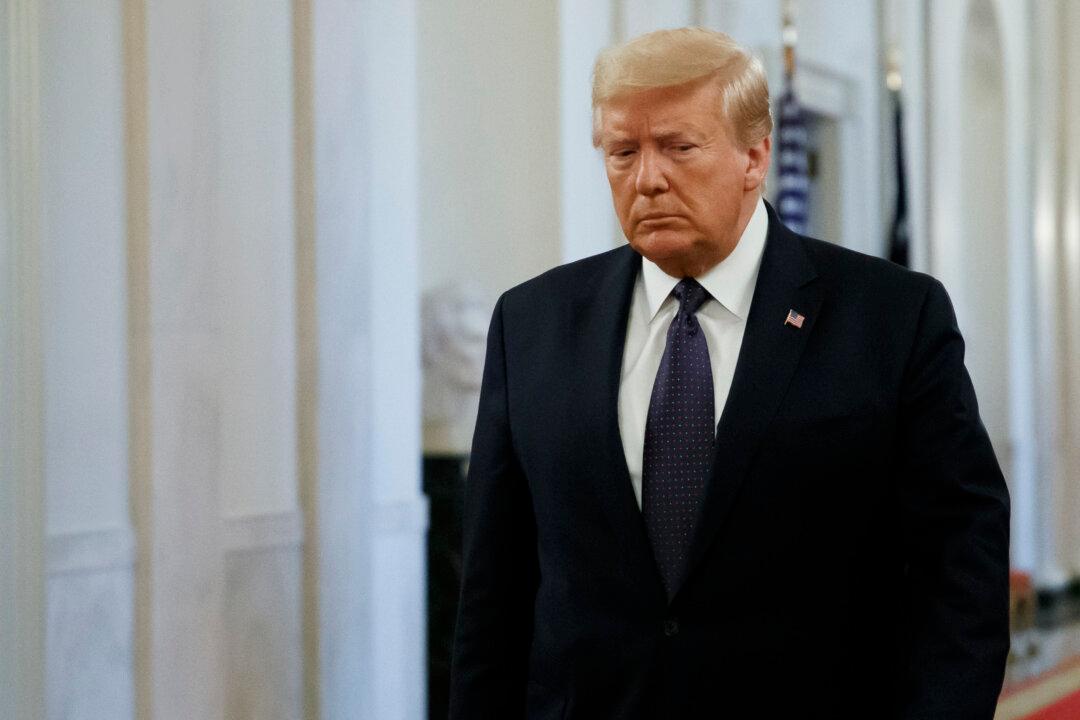President Donald Trump said he didn’t impose sanctions on Chinese officials involved in placing Uyghurs in concentration camps because of trade negotiations.
“Well, we were in the middle of a major trade deal,” Trump told Axios when asked why sanctions through the Treasury Department haven’t been enacted against officials or entities linked to the camps.





